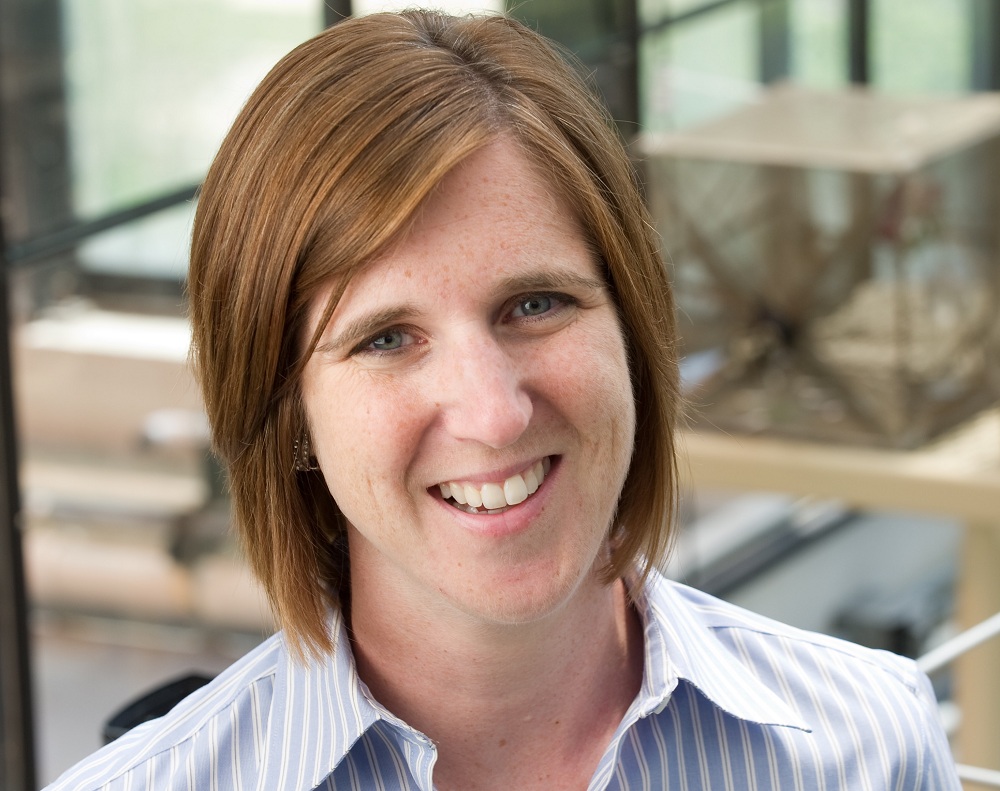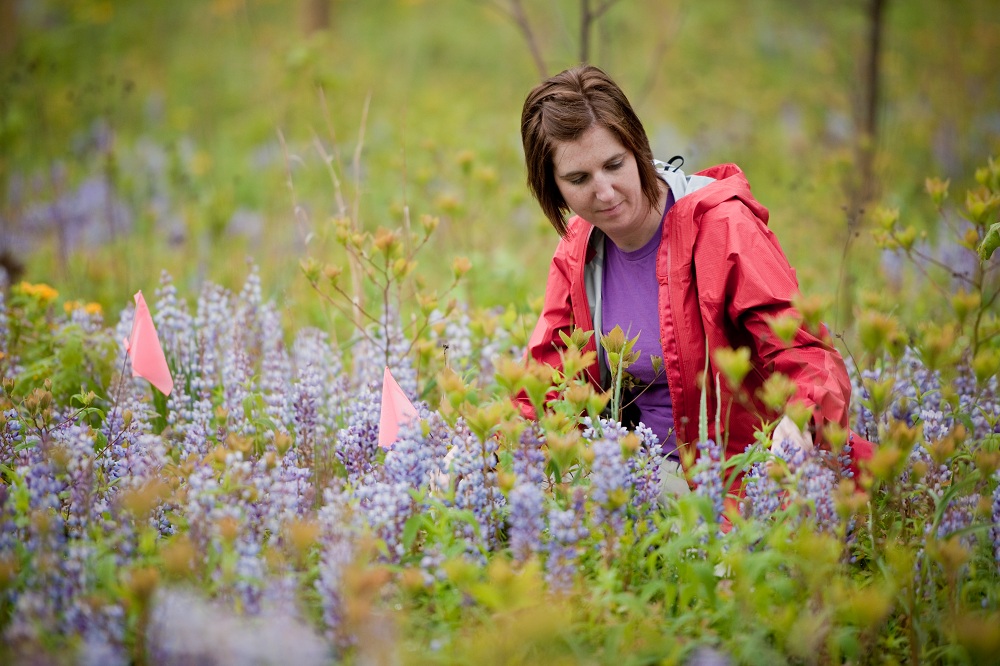Studying Climate Change's Impact on Organisms and Ecosystems

This ScienceLives article was provided to LiveScience in partnership with the National Science Foundation.
You have probably heard about the great scientific and social dilemma called global warming or climate change. The climate has changed many times in the past, but this time it is changing rapidly because of chemicals that humans are adding to the atmosphere. All creatures on Earth are exposed to the climate and are affected by it, so they will change when the climate changes. Jessica Hellmann, a researcher at the University of Notre Dame, in Indiana, and ecologists like her are figuring out how and why creatures change when the climate changes, and what can be done to reduce the negative biological effects of climate change.
Hellmann was born in central Indiana and raised in the heartland of the auto industry and agriculture. A Bachelor of Science from the University of Michigan in natural resource management launched her long-term interest in blending basic and applied science. Hellmann earned a Ph.D. from Stanford University and held postdoc appointments at Stanford and the University of British Columbia. She now enjoys research and teaching at Notre Dame. Her field studies take place in the wilds of British Columbia and Oregon and in the mixed-used landscapes of the Indiana Dunes and the greater Chicago area.
Name: Jessica Hellmann Age: 37 Institution: University of Notre Dame Field of Study: Ecology/Global change biology
What inspired you to choose this field of study? Space camp, my grandpa’s farm, great biology teachers and a dad who was an engineer all inspired me. Put all those things together and you get ecology, genomic biology, and an interest in environmental policy, I guess. Oh — and my mom was an English major who taught me the difference between "good" and "well." As a result, writing and reading are very important to me. Today, I am highly motivated to write and talk about science in an accessible way.
What is the best piece of advice you ever received? It sounds cliché, but I remember a high school teacher telling our class that the only reason to do anything was if you really loved it. At the time, the sentiment clicked, and I remember never worrying thereafter if I was doing the right thing or was going to make enough money. I just knew that as long as I was good at what I was doing and I enjoyed it, all would work out in the end.
What was your first scientific experiment as a child? Figuring out how long a lightning bug could stay alive in a glass mayonnaise jar with holes poked in the metal lid. The answer: Not long.
Get the world’s most fascinating discoveries delivered straight to your inbox.
What is your favorite thing about being a researcher? My graduate students are one of my favorite things about research. My own students might be surprised to hear that, but one of the best things about being a research professor is the opportunity to help young people discover new things and become creative thinkers, strong writers and independent scholars. Grad students are the bedrock of my lab group, and they bring enthusiasm and excitement. I am extremely grateful for every student who wants to work with me. Being a professor is a great privilege and a joy.
What is the most important characteristic a researcher must demonstrate in order to be an effective researcher? A researcher must exemplify persistence: Try, try, and try again. Get advice from others. Listen to your harshest critics, but build a thick skin that protects your heart from unfriendly critique. Believe in yourself but be humble. Always strive to do work that betters humanity and the earth.
What are the societal benefits of your research? Society is facing an enormous challenge in global climate change, perhaps the greatest that we have ever faced. As fast as possible, we must learn how to prevent catastrophic climate change and live with the climate change that we have already caused. I study the ecological effects of climate change and other human-caused environmental changes so that we can know which species and ecosystems are most sensitive and why. My students and I then convert this information into strategies and techniques so that humans can protect nature where it needs it. We have an obligation to preserve life on Earth, and we depend on other species completely.
Who has had the most influence on your thinking as a researcher? I have benefited from many excellent mentors. My graduate advisor at Stanford, Paul Ehrlich, taught me how to pursue excellent research and communicate those findings to the public. I’ve been thinking a lot recently about Stephen Schneider, a leading climate scientist who passed away in 2011. Steve and his science- and life-partner, Terry Root, who also works at Stanford, taught me that all the great problems in science have a social dimension. Without reaching out to people, those problems can’t be solved. Steve and Terry also taught me that science speaks truth to power.
What about your field or being a researcher do you think would surprise people the most? I think it would surprise people to hear that principal investigators are like small business owners. That we spend nearly as much time doing accounting, human resource management, and talking with the public as we spend time in the lab or field. There is a lot more that goes in to running a research group than good science skills. We could stand to teach our students more about these other aspects.
If you could only rescue one thing from your burning office or lab, what would it be? Samples from our negative 80 degrees Celsius freezer. They are about the only thing that we have that is not replaceable. I remember one time when we shipped some live specimens from the field to the lab via [a commercial delivery service]. They got lost and arrived weeks late — and dead. If I remember correctly, [the company] was willing to pay $100 for not living up to their "next-day guarantee." I thought: "$100! Those bugs were worth millions in blood, sweat and tears!"
What music do you play most often in your lab or car? I hardly ever listen to music in my car. I’m a dedicated NPR listener and supporter of my local station, WVPE. I listen to music on my iPod though, especially on long runs by myself. The faster the music, the better, but two of my favorite songs are by the Fiery Furnaces.
Editor's Note: The researchers depicted in ScienceLives articles have been supported by the National Science Foundation, the federal agency charged with funding basic research and education across all fields of science and engineering. Any opinions, findings, and conclusions or recommendations expressed in this material are those of the author and do not necessarily reflect the views of the National Science Foundation. See the ScienceLives archive.




